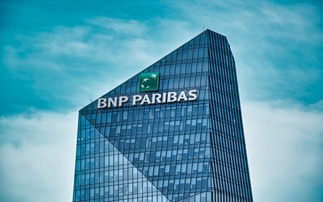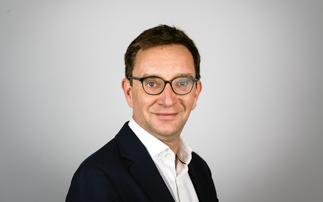Paul Faulkner interviews Tom Coutts.
This webcast may contain information on investments which does not constitute independent investment research. Accordingly, it is not subject to the protections afforded to independent research. Baillie Gifford and its staff may have dealt in the investments concerned.
The views expressed are those of the speaker and should not be considered as advice or a recommendation to buy, sell or hold a particular investment. They reflect personal opinion and should not be taken as statements of fact nor should any reliance be placed on them when making investment decisions.
Please be aware that due to changing stock market conditions and currency exchange rates, the value of a stock market investment and any income from it can fall as well as rise, and you may not get back the amount invested.
The Fund's share price can be volatile due to movements in the prices of the underlying holdings and the basis on which the Fund is priced.
Paul Faulkner: Well I am here today with Tom Coutts to talk about the European Fund.
Tom, if anyone was to read any of the headlines at the moment they would think Europe was a total disaster area, but you think it is an interesting place to invest.
Tom Coutts: We do and part of the reason we think it is an interesting place to invest is because of those negative headlines. To some extent the worse the headlines get the more we become interested and we become particularly interested if there is a disconnect between those negative headlines that you see in the Financial Times and the reality that we hear from talking to management of companies we invest in and from reading the financial statements. And that is precisely what we see at the moment, a disconnection between the top down view and the bottom up view and as stock pickers it is the bottom up view that interests us and it’s the optimism that we hear from the companies that we talk to that really gets us excited about the long-term prospects for European equities.
PF: Ok and what are you seeing when you are focusing on that bottom up reality?
TC: Well, we think Europe is home to a great number of terrific, world class businesses, companies with a good product portfolio, with strong customer relationships, with good management and in many cases with good opportunities to grow.
PF: But don’t dull prospects for the European economy mean dull prospects for those companies too?
TC: We don’t really care where the companies in which we invest get their growth, whether it’s from within Europe or outside. Although it is true to say that on the whole many of the businesses in which we invest have their most obvious growth opportunities from outside of Europe at the moment. They have often invested overseas for a very long period of time and they are taking products that they have sold successfully within Europe or within the United States and some of the newer markets around the world.
PF: So could you give us any examples of that?
TC: Sure, well if you take a company like Nestlé, which everyone will be familiar with, it’s got a very strong position in the Chinese coffee market. It has about 60 percent share of that market and more interestingly that is a market which is pretty young, very immature.
So if you look at the average consumption of coffee in China it is about three cups per capita, in Shanghai it is closer to 30 cups per capita per year. That 30 cups in Shanghai is 1/20th of the level of consumption of France, lets say, or maybe more interestingly about 1/6th of the level of consumption in Hong Kong. So Nestlé has got a very strong position in a very immature market with really good long-term growth prospects which should endure for many years.
This interview continues...











